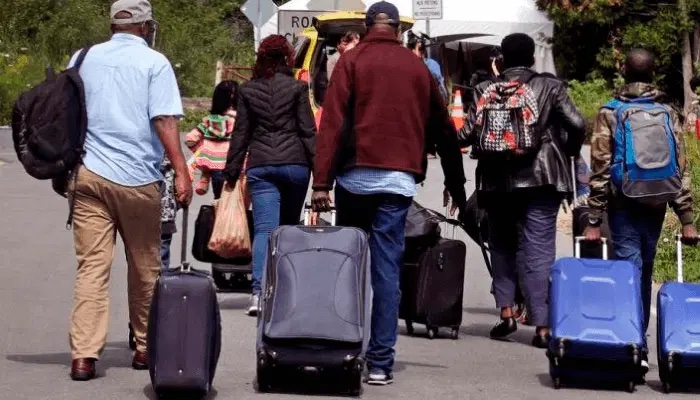London, UK — Tony Smith, the former director-general of the UK Border Force, has called for a radical overhaul of the asylum system that would require migrants granted refugee status to repay the costs of their accommodation and processing once they are permitted to work.
Speaking amid record Channel crossings and spiralling asylum-related expenditure, Mr Smith said the government could recover up to £2.7 billion annually, nearly half of the current £5.4 billion spent each year on supporting asylum seekers.
He suggested that migrants who eventually gain the right to work could be required to repay their state-funded housing and support costs over time, similar to the UK’s student loan system. Under his proposal, asylum claimants would not be granted indefinite leave to remain or full citizenship until their debts are cleared.
“If they got the message that it’s not a free ride and any money that they cost the state would have to be repaid, it would act as a deterrent,” Mr Smith said.
“We could also serve them notice on arrival of the costs they would incur if placed in hotels or state-run accommodation and give them the option to stay with friends or relatives instead.”
Shadow Home Secretary Backs Proposal
Shadow Home Secretary Chris Philp voiced support for the proposal, saying it would restore fairness to a system that he argues has long burdened British taxpayers.
“Illegal immigrants who come from a safe country like France and claim asylum should not have a free ride,” said Mr Philp.
“Where they are housed at taxpayers’ expense, it is only reasonable that they should have to pay these costs back.”
“British taxpayers have been fleeced for too long by illegal immigrants abusing our system. This nonsense has to end.”
Legal Hurdles and Rising Pressure
Under international law, the UK is obligated to provide housing and subsistence to asylum seekers who declare themselves destitute. Currently, this includes accommodation, food, and a weekly stipend of £49.18. Migrants may only apply to work after one year if their claim remains undecided.
The proposal comes at a time of rising political and public pressure over the cost and management of the UK’s asylum system. Government figures revealed on Wednesday that over 20,000 migrants have crossed the Channel so far in 2025—a new record for the first half of a calendar year.
Mr Smith argued that his plan offers a technologically feasible solution that could be implemented using existing biometric tracking systems already in place upon arrival.
“When they arrive, we already fingerprint, photograph, and log them. The thousands of pounds in costs can be tracked by the Home Office just like student loans,” he said.
“Once granted the right to work, deductions could begin. And until those debts are paid, there would be no indefinite leave to remain. That would also incentivise integration and employment.”
“We do this for British students. Why not for those who arrive and cost the state thousands?”
Soaring Asylum Costs
Official figures show that the UK’s asylum bill has nearly doubled in two years, rising from £3 billion to £5.4 billion. Over 30,000 asylum seekers are currently being housed in hotels, costing more than £5 million per day. There are more than 100,000 individuals still awaiting a first decision on their asylum claim.
With the government’s controversial “one-in, one-out” migration policy yet to curb arrivals, voices like Mr Smith’s are likely to fuel further debate as both the Conservative Party and Labour face mounting pressure to demonstrate fiscal responsibility and border control.



